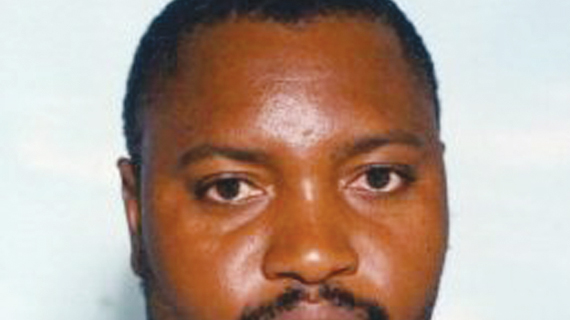
IN our conservative culture, wishing the misfortune of death upon others or openly rejoicing in their death is a contemptible taboo.
A Candid Date with Masola wa Dabu Dabu
Our culture prescribes that one cannot wish the death of another individual; not even during meditation or in silent prayer.
We believe that wishing death upon others could instead result in the early death of the bearer of the ill wish. If encouraging discourse on wishing Adolf Hitler or his surrogates dead is a transgression, then during the course of the World War II many would have been found guilty of committing a cardinal sin.
It does not need rocket science to demonstrate that humanity has benefited from some people’s death. It can be proved that the only way some problems can be resolved in favour of the people is through the death of one or two individuals.
The scriptures offer a dint of moral justification for such extreme views through the death of Jesus Christ who died for our sins.
From a historic perspective, the death of an individual or two has provided some form of reprieve to the persecuted people.
Our dear Africa has benefited from the largess of selective death.
- Chamisa under fire over US$120K donation
- Mavhunga puts DeMbare into Chibuku quarterfinals
- Pension funds bet on Cabora Bassa oilfields
- Councils defy govt fire tender directive
Keep Reading
Countries like Angola, Malawi and Zaire, to name but a few, stick out prominently as having benefited immensely after the deaths of the domineering protagonists.
From 1975 to 2002, the mighty Zambezi River used to flow with blooded waters from the victims of a savage civil war that raged at its basins in Angola. A humanoid scourge known as Jonas Savimbi led Unita in fighting an ugly war against the MPLA government.
He roamed southern Angola and decimated communities. Reprieve for the war-torn country arrived unexpectedly on February 22 2002, when Savimbi was killed during a clash with government troops.
Angola got the relief it had been looking for with many people celebrating the unexpected death of a universal scourge. Benefits of Savimbi’s death to Angola started accruing six weeks later when Unita and the MPLA agreed on a ceasefire. Angola continues to make impressive economic strides with an unprecedented growth rate.
It was not a military defeat of Unita in the battlefield that brought peace. It was Savimbi’s death.
The resultant reprieve after his death was enough to absolve those who would have openly prayed for his death.
On November 25 1997, Malawi’s Hastings Kamuzu Banda died after single-handedly ruining Malawi as President for a period nearing 34 years. During his reign, the so-called Ngwazi established the Young Pioneers, a paramilitary wing very similar in operational tactics to Zimbabwe’s green bombers and the people’s militia.
Malawians would have wished him an early death, yet culture gagged them.
Home is not very far from Angola and Malawi. The difference is that home is so peaceful and everyone is living in harmony so much that there is no need to wish anyone dead! The only time most Zimbabweans would have wished the death of others was during Zimbabwe’s war for independence.
Surely as President Robert Mugabe and Vice-President Joshua Nkomo sat in their cosy nests in Maputo and Lusaka respectively, they did wish for some stroke of misfortune to befall Ian Smith, Bishop Abel Muzorewa and the likes of General Peter Walls.
It would have been unnatural in an African context for them to admit to such wishes, yet the aims and objectives of waging a war included maiming and killing as many opponents as possible. Conversely, the Rhodesians would have prayed for Mugabe and Nkomo’s deaths and they matched this wish by actively pursuing them with an assortment of small arms, heavy arms and jet bombers.
In present-day Zimbabwe, we are lucky that we do not have to wish anyone dead. We are not subjected to untold tyranny. There is no abject poverty and there is no tribal disharmony.
We cannot wish our good leaders any perilous outcome because they are beyond reproach. They are very down-to-earth and they have human hearts. Our political system is among the best in the world as it safe-guards the principles of democracy through well-defined universal suffrage. The system protects the rights of the country’s citizens and does not poison us with indoctrination and senseless dogma.
Our system discourages us from deifying mortals, but it encourages us to respect the rulers and the rule of law without fear or favour. We are a proud nation that does not need to wish for the death of our leaders. We cannot think of any reason why those who do not share our opinions and beliefs should meet up with untimely death.
We are lucky that we do not have die-hard gun-toting losers like Mozambique has Renamo.
This is Zimbabwe. We have no reason to wish our leaders bad luck during their exploratory shuttle trips around the globe.
We do not have dictatorial leaders. Wait a minute! Maybe we have adversaries we would wish dead, but we are too morally upright to wish peril and strife upon them.
Perhaps we have become victims of our own fears and beliefs.
We have made those who torment us to believe that their evil deeds on us are a fulfilment of predefined fate. We truly do forgive others, whatever the degree of humiliation they might have caused us.
We wish for freedom, yet we are afraid to pray for it. We are guilty of denying ourselves the God-given power of prayer. Surely, praying for the death of an individual in order to save millions cannot be a statutory felony? If Zimbabweans could say their desperate prayers, maybe good leadership might visit upon them.
Let us pray!
Masola wa Dabudabu is a social commentator










